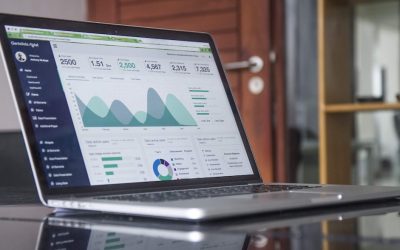
Getting traffic should be and in most cases is the goal of all online marketing efforts. In fact, the success of a business online relies highly on the amount of traffic generated and the quality of that traffic.
In most cases, the subject of debate is how much does SEO matter over PPC, is one better than the other in terms of generating targeted traffic? SEO or Search Engine Optimization works by optimizing a website to rank high on Search Engine Results Pages.
On the other hand, PPC or Pay-Per-Click advertising or marketing requires that you pay for every click. Though the end goal is the same in the sense that they are both needed to generate traffic, they will require a separate set of methodologies and techniques.
In our experience, both methods are highly effective at generating traffic for a website. Also, a solid digital marketing strategy uses both approaches by leveraging the strengths of each one.
The right approach can translate to an excellent return on investment for businesses regarding conversion rates and the costs associated with the process.
When is the Best Time To Utilize SEO?
SEO is an umbrella term for a couple of different techniques used to propel a website to the first page and hopefully to the top of the first page of major search engines. Generally, all businesses and websites target Google search since it’s the largest search engine.
However, many experts believe that it can be just as lucrative for businesses to optimize their websites for other search engines like Bing, Yahoo, and Duck Duck Go. Coincidentally, all search engines offer paid search as an alternative to generating organic traffic.
Statics reveal that 80% of the traffic a website can generate comes from search engines. Google is the biggest, with 3.5 billion searches per day; that’s why most SEO campaigns target it.
So, the question is, when should you use SEO techniques instead of PPC? Below are a couple of scenarios where SEO can be beneficial:
When You Want Consistent Results – SEO tends to have a long gestation period. It takes a while getting to the first page of SERPs, so results are by no means something you’ll see overnight or even after a week. In some industries, it can take months.
Though once a website reaches the top half of the first page for a high volume keyword, the organic search traffic is pretty consistent. However, the SEO campaign is an ongoing effort to ensure that results are maintained.
So, if you’re thinking SEO or PPC for a website, technically, SEO can ensure consistent results. You also don’t need to worry about PPC (Pay Per Click) prices rising.
When You Want to Build Authority – An authority website means an established resource center for the niche. For all intents and purposes, it is a “go-to” website for when members of the niche need to get certain information.
However, once an authority website gets going, it can generate a tremendous amount of traffic simply based on people’s ability to remember the URL.
A popular example is Wikipedia. The most efficient way of establishing authority is to build a reputation until it is market-dominating in terms of popularity. The best way to do that is with quality content driven by strong foundational SEO.
When You Want to Improve A Website’s Value – Think of a website as a virtual piece of property. If you are planning to sell the website for a high price, it’s important to increase its value. Many factors contribute to improving the value of a website, one of which is to increase the amount of traffic generated.
Consistently high-quality traffic and rankings for high volume keywords can overtime ensure that your website is more valuable.
The important thing to keep in mind is that SEO isn’t necessarily free clicks. There is a lot of work that goes into creating and then promoting content across multiple web pages. In other words, businesses need to invest both time and money.
When Should You Use PPC over Google Ads?
Pay-per-click marketing also referred to as PPC ads, is a method of advertising on SERPs. Users will primarily bid to have their ads appear on what’s labeled as “sponsored results” when someone types in a query that includes the keywords they are targeting.
It’s termed pay-per-click because advertisers have to pay each time a user clicks on the ad being promoted. Some of the most popular platforms include Google Ads, Facebook Ads, and Bing Ads, etc.
There are also some niche-specific PPC systems. PlentyofFish.com’s advertisement option, for instance, is the perfect example of a PPC advertising platform that’s geared towards dating.
When is PPC advertising or marketing a good idea? Here are a couple of examples:
When a company wants to see results right away – PPC works best for businesses to see near-instant results. In some cases, you can start seeing results within minutes with a rush of visitors to your page.
That’s because the moment an SEO campaign goes live after approval, your ads will start being displayed for people to see. That’s why the traffic is near-instantaneous in some industries.
PPC works impressively well with product launches, CPA marketing, squeeze pages, and affiliate marketing involving high converting offers, seasonal promotions, JVs, and analog online business campaigns.
When a Business Needs Highly Targeted Traffic – Unlike SEO, one of the most prominent strengths of PPC marketing is that it allows you to narrow down prospects based on where they are located quickly. Like social media platforms, many PPC platforms allow you to set options down to the nitty-gritty like gender, age range, education level, income bracket, marital status, etc.
Popular sites like Facebook allow you to target people based on their hobbies easily. That’s why pay per click (PPC) is so powerful.
Promoting a Time-Sensitive Offer – One of the challenges of online marketing is efficiently marketing services, events, and products that have an expiration date associated with them.
The long-gestation period for SEO isn’t going to cut it. The time-sensitive offers merit that they start getting eyeballs right away, and that’s where PPC marketing is perfect. You can easily promote something like a time-sensitive offer, which gets traffic to that offer within hours, if not minutes.
But in this instance, you shouldn’t limit yourself to search advertising.
When a website isn’t SEO optimized – You need to use content-rich websites for regularly updated SEO. However, that’s just one aspect of SEO. There are other aspects like building links, regular social media posting, etc.
However, some websites may not be designed for SEO but still need search engine traffic. Take squeeze pages or lead generation pages, for instance, that may not have as much content as Google would like or the quality.
So, it does not make sense to invest in SEO. Websites like these can generate traffic directly from PPC campaigns, with the added advantage of saving a lot of effort, which would otherwise be needed for SEO. But there needs to be a sizable marketing budget to sustain that traffic.
If you want to dominate the search results from the get-go – PPC or sponsored advertising results are displayed above their organic counterparts. In competitive niches, even the best organic SEO isn’t going to get you higher than those sponsored results.
Furthermore, that prominent position means that you’ll get 50% of search traffic, which according to the data suggests, goes to the first three sponsored results. If you’re absent from those results, it can mean that you’re conceding the loss of those clicks to the competition.
Also, PPC gives you a way to dominate search results while your team works on getting organic search engine rankings.
Conclusion – Use SEO and PPC Together
Ideally, you will want to use SEO with a PPC campaign. The best digital marketing strategy encompasses PPC and SEO across various search engines and social media platforms.
While they both have their own set of pros and cons, but each supports the other synergistically. As professionals, we know it is possible to get both PPC and SEO to work together.
We’ve successfully used SEO and a PPC campaign across dozens of businesses. PPC helps offer us insights into if specific keywords are the best fit for what a business is selling based on conversion data.
It also allows us to split test landing pages to find what works best. In fact, A/B testing using PPC is a lot more effective because it offers us way more data.
Once we know what keywords are an ideal fit for the niche, we can start optimizing the site for those keywords, ensuring that it ranks for them within the next few months.
The latest posts from the blog:
Looking for Pay Per Click Help?
[seopress_breadcrumbs] Pay Per Click marketing (PPC) is synonymous with Google Ads and is one of the best ways to rank high in SERPs by paying for it, usually per click. Not only is it one of the most potent ways to generate highly targeted traffic, but...
read moreThe Different Types of Digital Marketing
[seopress_breadcrumbs] In the past decade, we’ve watched as digital marketing has become a significant part of an organization’s overall marketing strategy. Not only does it allow businesses to tailor their messages specifically to their target audience...
read moreWhat is PPC Advertising? (AKA Pay Per Click)
[seopress_breadcrumbs] Most people who are new to digital marketing or internet marketing may have heard about pay-per-click advertising (PPC) but may not know much beyond the fact that you need to pay for every click. However, there is much more to...
read moreTop 7 Benefits of PPC Marketing and Advertising
[seopress_breadcrumbs] As experts in the internet marketing industry, we often run into clients and individuals who can't seem to see the value in Pay Per Click (PPC) advertising. You could show them all the statics in the world, but it may still not be...
read moreAdvantages and Disadvantages of Digital Marketing
[seopress_breadcrumbs] Today's business and commercial world is to a large extent based around online activity. Where the internet was once mostly informational only, now all kinds of everyday things are done at a computer, tablet, or cell phone screen from ordering...
read moreABOUT ITONIC
A full-service digital marketing agency based in New York & London. Delivering world-class results to hit our revered clients. Hitting KPI's across Search, Social & Display.
Email: hello@iTonic.com
US: +1 646-583-0068
UK: +44 20 8638 0668
© iTONIC.COM 2024. All rights reserved
Subscribe to newsletter





